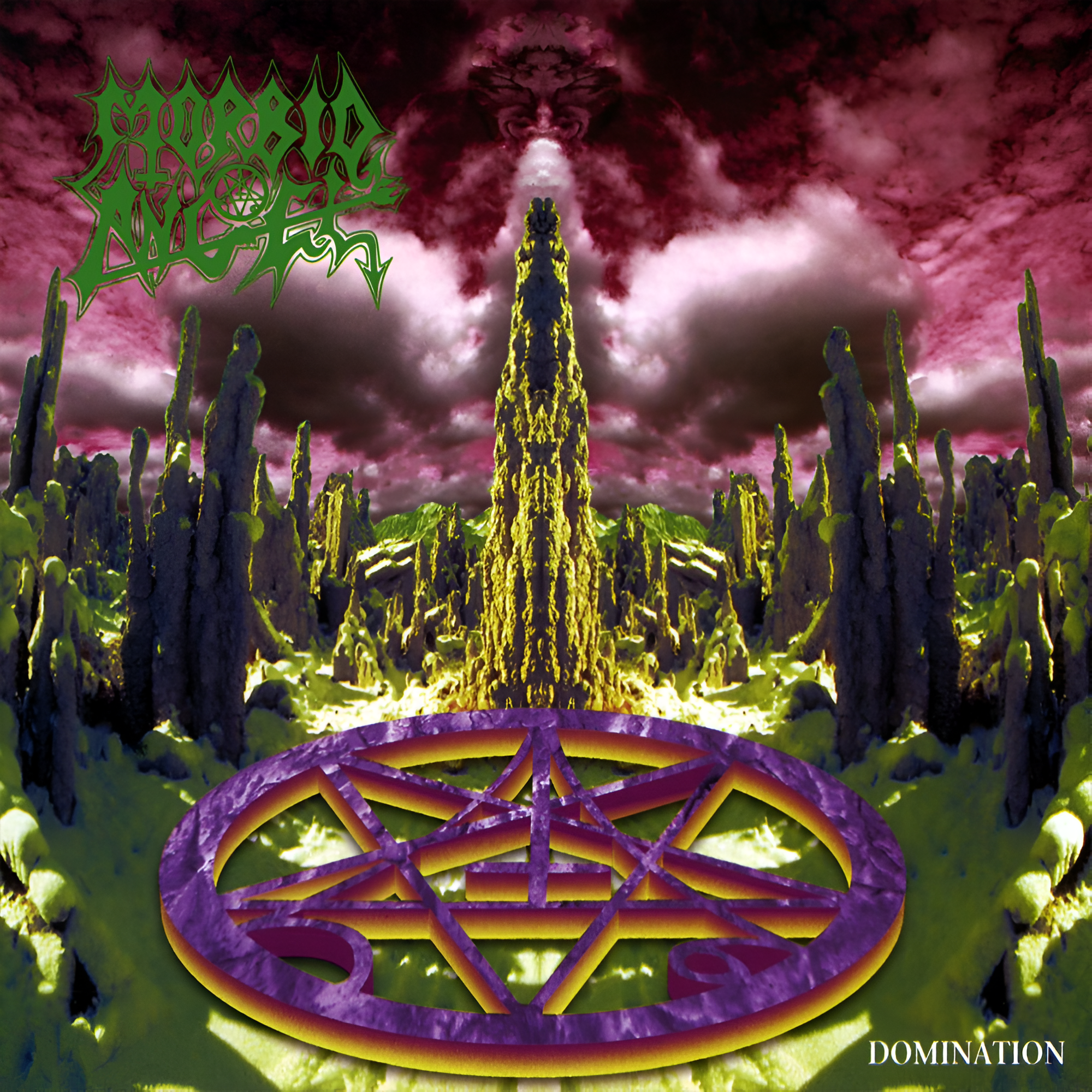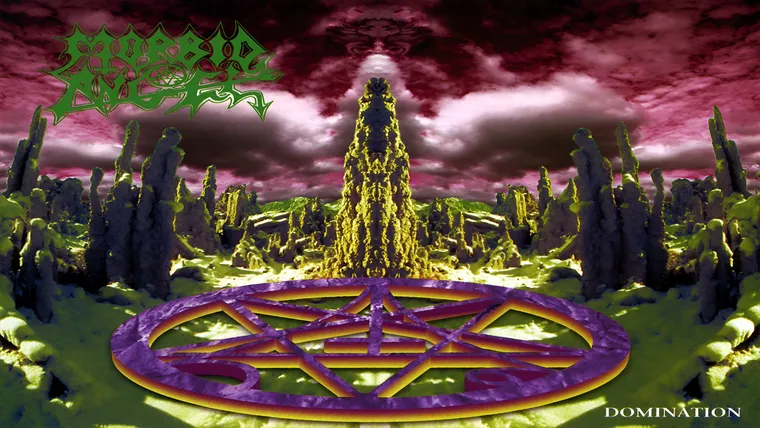
By the time Domination arrived in 1995, death metal had fractured into a hundred different mutations. The early '90s boom had started to fade, and many bands were either retreating underground or chasing more extreme fringes. While others thrashed wildly into brutality or technical chaos, Morbid Angel chose a different path—one that didn’t dilute their power, but distilled it. With Domination, they created an album that felt less like a battle and more like an occupation: cold, calculated, and inescapable.
After three trailblazing records—each a landmark in its own right—expectations were high. Altars of Madness brought speed and satanic fervor; Blessed Are the Sick introduced neoclassical flourishes and a deeper, more occult feel; Covenant was polished and punishing, a commercial and critical apex that even saw them briefly flirt with MTV visibility. But Domination didn’t try to replicate the past. Instead, it dug deeper, moving away from sheer velocity and focusing on oppressive weight, mid-tempo grooves, and an atmosphere thick with decay.
Sound as Structure: The Architecture of Oppression
The album kicks open with “Dominate,” and it feels like marching boots on scorched earth. The riffs aren’t flying off the rails—they’re stomping, suffocating. Trey Azagthoth’s guitar work is less frantic here, but no less twisted. His tone is monstrous, and his riffs bend like molten steel. The addition of Erik Rutan as second guitarist isn’t just cosmetic; it changes the DNA of the band’s sound. Rutan brings a dense, layered heaviness that gives the songs more dimension, more weight, and a slightly different kind of menace.
Tracks like “Where the Slime Live” became iconic for a reason. It’s not fast. It doesn’t rely on blast beats. But its slow, churning rhythm and monstrous atmosphere make it one of the most enduring death metal songs of the '90s. Sandoval’s drums are deliberate, almost ritualistic, and David Vincent’s vocals cut through like a declaration of war. His presence on this album is magnetic. Gone is the more snarling, youthful voice of earlier records—here, he sounds like a dark priest at the height of his power. On songs like “Eyes to See, Ears to Hear” and “This Means War,” his tone drips with disdain, authority, and a strange sort of grandeur.
Ritual and Power: The Thematic Depth of Domination
Lyrically, Domination doesn’t waste time on gore or clichés. Morbid Angel have always leaned toward the esoteric, the arcane, and the mythological, and this album is no exception. There’s a recurring theme of decay—not just physical, but spiritual and societal. The slime of “Where the Slime Live” isn’t just literal filth—it’s symbolic rot, creeping into all corners of the human world. “Dawn of the Angry” explores rage and internal corruption. “Melting” plays like a hallucinogenic descent into dissolution of form and identity. There’s a through-line of entropy here, a sense that everything is crumbling, not through explosive violence, but through inevitable collapse.
The album’s closer, “Hatework,” is a statement piece. It’s slow, drawn-out, and orchestral in feel, with ominous choral textures and spoken passages that feel almost theatrical. It's not what you’d expect from a band often labeled as purely brutal, but it’s exactly what Domination is about—expanding death metal’s vocabulary without watering it down. There’s power in restraint, and Morbid Angel wield it like masters.
Production That Enhances the Ritual
Part of what makes Domination so effective is its production. Handled by Bill Kennedy—whose work with Sepultura on Chaos A.D. had already shown a deft hand with heavy, layered music—the mix gives each instrument space to breathe. There’s none of the murk that plagued lesser death metal releases of the era. Instead, you get clarity, weight, and a sense of scale. The drums are thunderous but never overpower the guitars. The solos cut through the mix with psychedelic flair, especially Azagthoth’s—which, as always, seem more like channelings from another plane than traditional guitar leads.
There’s a distinct “wetness” to the album’s sound—like everything is echoing through damp stone walls. It fits the album’s swampy, rotting aesthetic perfectly. This isn’t music of the fire; it’s music of the mire.
Legacy of the Leviathan
At the time, Domination was divisive. For fans who worshipped the unrelenting speed and chaos of Altars of Madness, the album may have felt too slow, too measured. But in hindsight, Domination was a vital evolution. It showed that death metal didn’t have to be about pushing BPMs or technical showboating. It could be about atmosphere, about presence, or about control. It paved the way for bands who would later blend death metal with doom, sludge, and industrial textures, while also influencing a generation of musicians looking for something more nuanced than simple brutality.
It was also the last Morbid Angel album with David Vincent for over a decade, and it feels like a culmination of everything he brought to the band: poise, intellect, darkness, and command. It’s no coincidence that many fans consider this the last album of the band’s classic era.
Domination isn’t an album that begs for attention. It doesn’t explode—it envelops. It’s not the sound of a battlefield, but of the scorched earth left behind. Nearly 30 years later, its grooves still grind, its riffs still loom, and its presence still feels unshakable. Morbid Angel didn’t just want to be kings of death metal—they wanted to remake the kingdom in their image. And on Domination, they did exactly that.
Standout Tracks:
- Dominate
- Where the Slime Live
- Eyes to See, Ears to Hear
- Dawn of the Angry
- Hatework
Death metal wasn’t meant to stay buried. With Domination, Morbid Angel dug it up, reanimated it, and marched it into a new era—one staggering step at a time.

